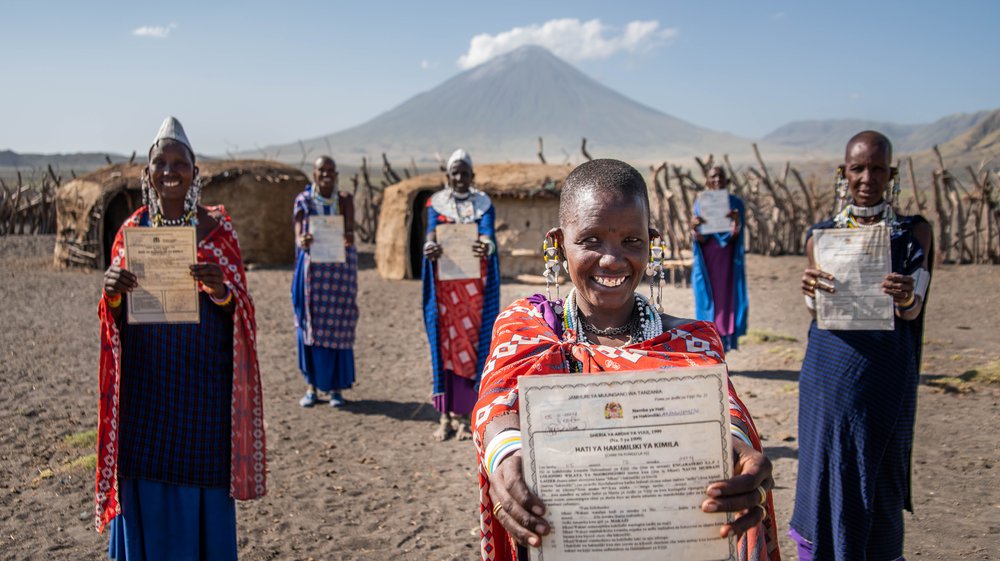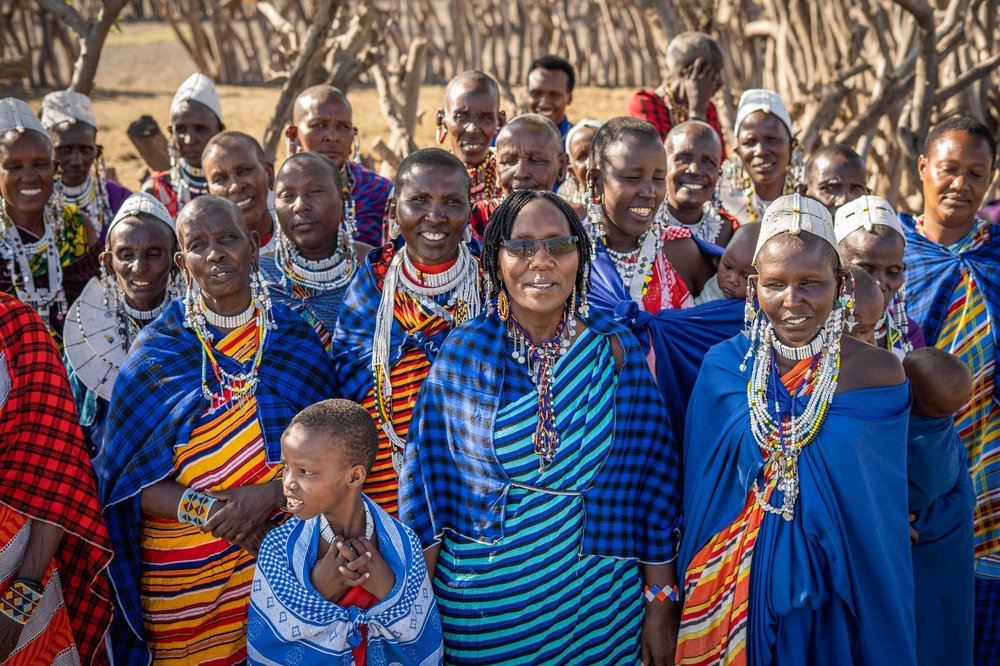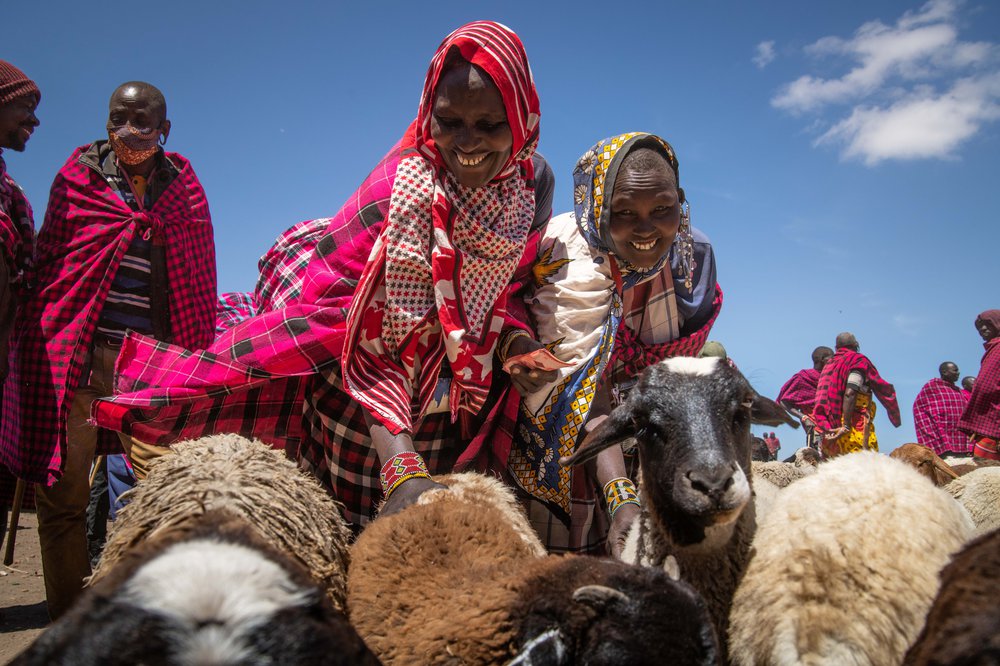Pastoral Women’s Council from Tanzania is featuring at the Fair of Ideas of the Global Land Forum in Amman
In many parts of the world, pastoralist land rights are trampled. Tanzania is not different, especially for women who cannot own productive resources because of age-long patriarchal traditions. Most readers know that climate change, fortress conservation, large-scale land investments, post- and neo-colonial beliefs and elite tourism all result in more loss of land for pastoralists. Also, women are often excluded from land-related decisions that affect the management of community land.
When the Pastoral Women’s Council (PWC) saw the degrading situation of women owning land in their country, they rose to the occasion in Ngorongoro, Longido and Monduli Districts in north-eastern Tanzania. Since 2005, PWC worked with district governments, community members and traditional leaders to enhance pastoralist women’s ownership of pasturelands and livestock. Thanks to their tenacity, over 1,800 pastoralist women, including 300 young women, have received plots of land from their village governments, through help from PWC staff members and community volunteers.
PWC has trained women on community land management and on participating in land-related decision-making spaces. At the time of their arrival in Amman, 177 women, with support from PWC’s Women’s Rights and Leadership Forums, secured leadership positions in village and district governments during the 2019 and 2020 general elections in Monduli, Ngorongoro and Longido.

At the PWC Cultural Community Centre, women hold up their Certificates of Communal Rights of Occupancy. Photo by PWC.
PWC hoped the local government would understand and help this cause, and they were not disappointed. PWC’s Women’s Rights and Leadership Forums and its team of community paralegals have empowered women through education on women’s rights, including land rights, leadership, economic empowerment and public participation in land-related decision-making. Thanks to this support, pastoralist women can participate in conversations about land. Since the Women’s Rights and Leadership Forums have engaged men, traditional leaders and local governments in multi-stakeholder dialogues about women’s land rights, these local leadership groups are now aware of the importance of including women in community land management.
Because of PWC’s initiatives, women have been allocated land titles, protecting their land rights and livelihoods.
PWC’s exhibition at the Global Land Forum’s Ideas Fair in Amman will definitely revolve around the five anchors of their good practice:
First, on the innovative work of the Women’s Rights and Leadership Forums. PWC will be demonstrating how this group is supporting women in claiming their collective land rights in the face of growing demands for land by foreign commercial interests and local elites.

PWC's founding members smile at their record achievement in 17 years. Photo by PWC.
Second, on how they successfully work through multi-stakeholder platforms to protect land rights. PWC will showcase the method they used, through Women’s Rights and Leadership Forums, to engage and negotiate with men, traditional leaders and village governments using a series of meetings to allocate land to women. PWC will share the various tools they use, such as social norms transformation training using the Securing Your Family’s Future curriculum it has co-authored.
Third, delegates and virtual participants at the GLF will be on the lookout for PWC’s lean on affordable technology on mapping and demarcating land. Many initiatives often stop at securing recognition for women’s land rights, but PWC is assisting local women to survey and demarcate the plots of land they received from male relatives and village governments, using GIS technology.

Women pastoralists celebrate equal land rights for women with a sheep ride. Photo by PWC.
Fourth, showcasing PWC’s land titling and certification: how it has worked with the indigenous women applying for land title certificates based on government guidelines; how the Commissioner for Lands and District Land Officers approved and issued land certificates; how land surveyors facilitated land demarcations and installed beacons to mark boundaries using GIS technologies; and how the women received communal and individual Certificates of Communal Rights of Occupancy.
Fifth, enhancing leadership by women and youth. GLF 2022 began with Global Land Forum Youth and a good number of the sessions are looking at access to and control of land by women. PWC will strengthen the discussions by demonstrating how they provided training to equip women with the necessary tools and knowledge to use their lands productively. Beyond land rights, they linked women to micro-credit and social enterprise funds to enhance their access to capital.
In fact, in 2017, PWC established Engishon Fund Ltd to increase indigenous women’s access to microfinance. Little wonder a total of 177 women, of whom 40 are youth, secured leadership positions in village and district governments during the 2019 and 2020 general elections in Monduli, Ngorongoro and Longido with the help of Women’s Rights and Leadership Forums. To achieve this political feat, PWC trained and worked with a network of 54 paralegals and 34 Women’s Rights and Leadership Forums to prepare pastoralist women for leadership positions.
Are you in Jordan? Don’t miss a brief visit to the PWC’s Ideas Fair booth!


